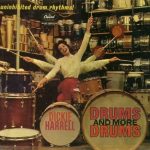What is Making Music About | For Parents and Kids
Posted in Learn | Last Updated on October 4, 2018

You may be new to learning an instrument or to singing, and you ask yourself, “What is making music about?” “What do I need to start off with and how do I get good at it?”
In this post I am going to give you tips and advises, which can be implemented in your kid music education as well.
You have a burning desire to produce sounds and rhythms, but you have to make a commitment to making music an important part of your life, if only for a certain amount of time. So it is not something you do once, twice or several times. If you want to succeed – whatever success means to you – you have to do it on a regular basis to see any real progress.
Is Making Music Like Learning to Drive a Car?
This is a very apt comparison, especially if you choose a delicate instrument. In your first practical driving lessons you have your hands full with steering, engaging the clutch, braking, checking your mirrors, etc. all at the same time! Not to mention all the traffic happening outside of your car.
Now imagine your first violin lesson: you learn to hold the instrument with your chin and your shoulder, you learn special arm- and hand movements for straight bowing, as well as pressing the bow onto the strings without cramping… all this at the same time! Not to mention the nuances and expressions in the piece you are playing.
Whether you’re driving a car or playing an instrument, there is something crucial you should keep in mind: Your Body Learns. As you become more and more secure with each lesson, your body stores the movements you do over and over again.
This enables you to focus your mind and your senses on what you are doing (be it traffic, music or whatever). Letting your body learn is something very special. Getting in touch with your body brings you closer to your true self because it helps you get out of listening and reacting to the permanently repeating voice (thoughts) in your head.
In fact, making music and working on sound can be an enormous relief for your soul. It can lead your body into deep relaxation and train your abstract and holistic thinking.
Do I Have to Be Talented?

Simply put: NO. There is something much more important, if you REALLY want to connect with your child and your audience when making music:
• The ability to get involved through listening, through your feelings and your child’s feelings, and through communication.
• The ability to just be. To allow yourself space and time.
• To let things happen.
• To accept the present moment AS IT OCCURS.
• To breathe consciously.
Listening to things and to yourself is something you can learn. I had to learn it too, and I am still learning. Many great and talented musicians do not have a clue what this is, but some do. And there are not-so-talented musicians who are great in those skills when they make music.
They are just doing, and they have lots of fun!
Do I need a teacher?
Well, that depends on you and on the instrument you choose. A hand drum will be way easier to learn on your own than a violin, but I know a freelance journalist who plays the self-learned violin competently, without notes, just by listening.
Of course a good teacher can give you loads of ideas, share his experiences and show you a lot of tips and tricks for the right motions. He can also encourage you to really express yourself in the playing process. You will find the right teacher for you whether you need someone to show you everything step by step or you are looking for someone who lets you discover your own way of playing.
Rhythmic Learning

I remember when I was learning to drum. The hardest part was practicing, and making an effort to do it again and again. But this is what’s most important for your progress: It is much better to practice a few minutes several times a week than once for a few hours straight.
But why? Distance is the key. Your body learns differently than your brain does. The body needs time. A lot of time. And body-learning requires polarities: Action and non-action. Loud and quiet. Slow and fast. So the best way to learn with your body is what I call Rhythmic Learning.
Find Your own Practice Rhythm!
Whether you study, work from home or have a 9 to 5 job, make sure that you practice on a regular basis. You can have fixed practicing times in the week, as well as intensive and laid-back practicing times. Both will do their work.
Your practicing time has to fit into your lifestyle. Do you make music? What are your personal goals? Please share your opinions below. I’d be happy to help you out if you have any questions or need further information. Thank you for dropping by.









